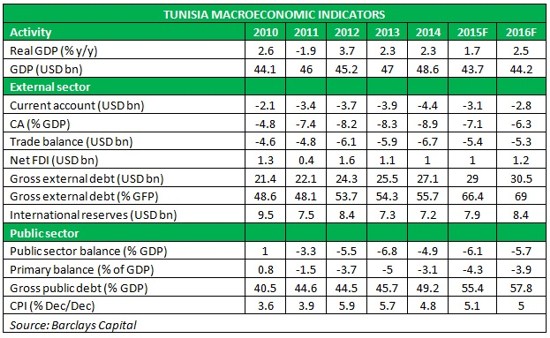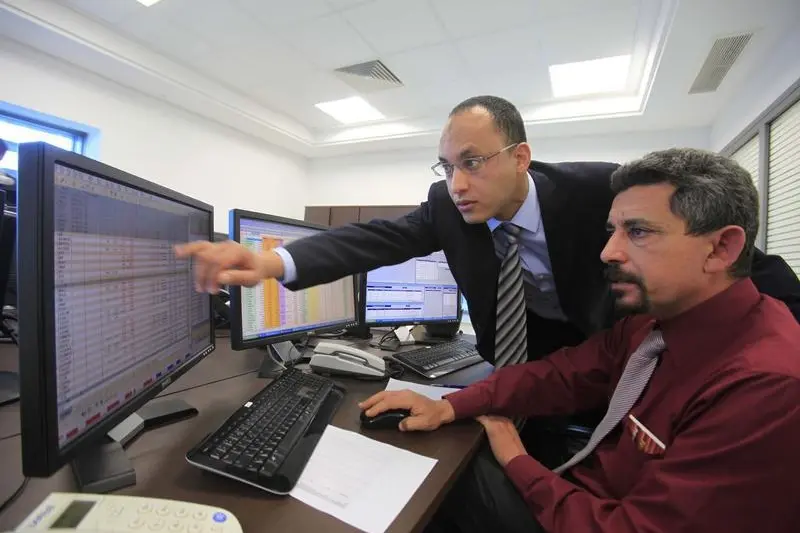PHOTO
Key economic reforms have been delayed by political wrangling.
Economic malaise had been deepening in Tunisia before its vital tourism sector was rocked by last month's militant attack on a beach resort and the North African country is still grappling with reforms needed to boost the economy.
The tourism industry, which accounted for 7% of gross domestic product last year and 12% of employment, is reeling from the attack by a gunman at a beach hotel in Sousse that killed 38 tourists and an earlier attack on Bardo Museum in March. Analysts now expect the sector, which also accounts for 9% of current account receipts, to lose USD 500 million.
President Beji Caid Essebi has declared a state of emergency and warned that the country's economy could collapse if there are more attacks.
"Fitch expects growth to slow this year, to 1.9% in 2015, from 2.3% in 2014 as the attacks damage tourism and FDI. Growth remains below ratings peers, and far below Tunisia's pre-2010 era level (4.4% on average in 2005-2010)," Arnold Louis, director of sovereigns at the ratings agency said in a report.
The ratings agency is highlighting an issue that many Tunisians have already been feeling on the ground despite progress towards greater democracy in the country following the "Arab Spring" revolution in 2011.
According to a poll conducted by Pew last year, 88% of Tunisians surveyed described the country's economic situation as bad, and 56% as very bad.
REFORMS
The government had downgraded its GDP forecast growth to 1.7% this year, compared to its projection of 3%, after the manufacturing and services sectors contracted in the first quarter of the year. The two sectors had realised limited gains in employment creation that brought Tunisia's unemployment rate to 15% in the first quarter, according to Barclays Capital.
Barclays said in a report that the government needs to push forward structural reforms, which have been delayed by domestic political wrangling.
"Most critical is parliament adopting the new investment code, the competition law and the PPP law, as well as passing the law establishing the Asset Management Company and other elements for a proper banking resolution framework," the report said.
The Central Bank of Tunisia has pledged to move forward with comprehensive tax reform to secure an extension to a USD 520 million standby agreement (SBA) with the International Monetary Fund. The latest SBA was part of the USD 1.75 billion arrangement granted by the IMF in 2013.
"While the IMF has extended its programme period until the end of November 2015 to allow for smooth implementation of this first phase of reforms, ensuring that these are consolidated by a second wave of reforms under a new IMF programme in 2016 will be critical," Barclays said.
Recent strikes at a phosphate mine and youth unemployment levels of 32% are among the many issues hinting at deeper, structural issues.
"This economic frustration is taking place in a context of rising conservatism, plummeting morale, and dwindling belief in the democratic process," said Maha Yahya, analyst at Carnegie Middle East Centre.
"The newfound freedom of the post-2011 moment unleashed repressed debates on the role of religion in politics and brought to the surface the simmering polarization between the 'coastal haves' and the 'inland have-nots'," she said, adding that the informal sector has been growing exponentially.
The economic changes are crucial to soothe tempers, especially among the youth who are being exploited by fundamental forces.
The feature was produced by alifarabia.com exclusively for zawya.com.
© Zawya 2015





















